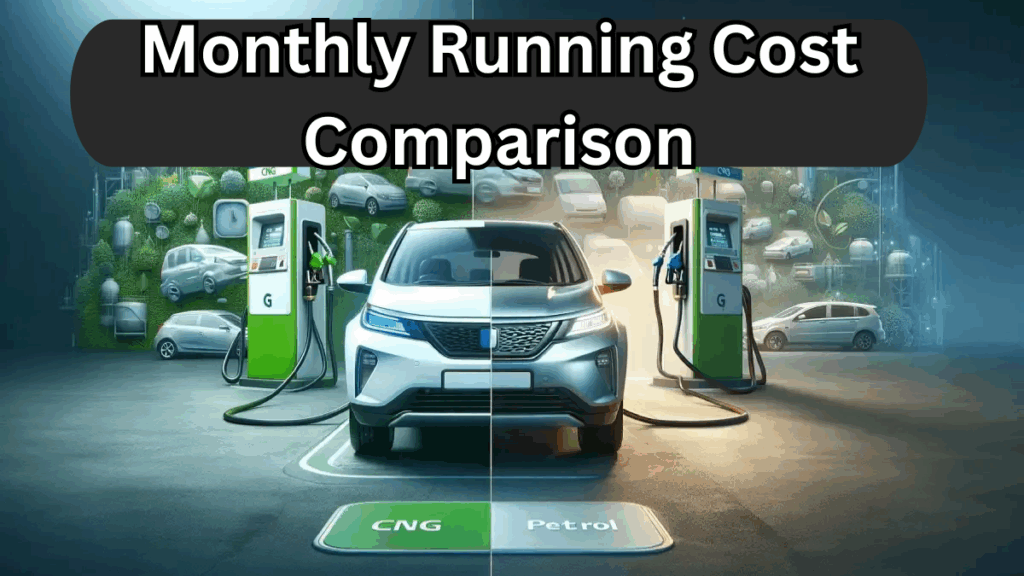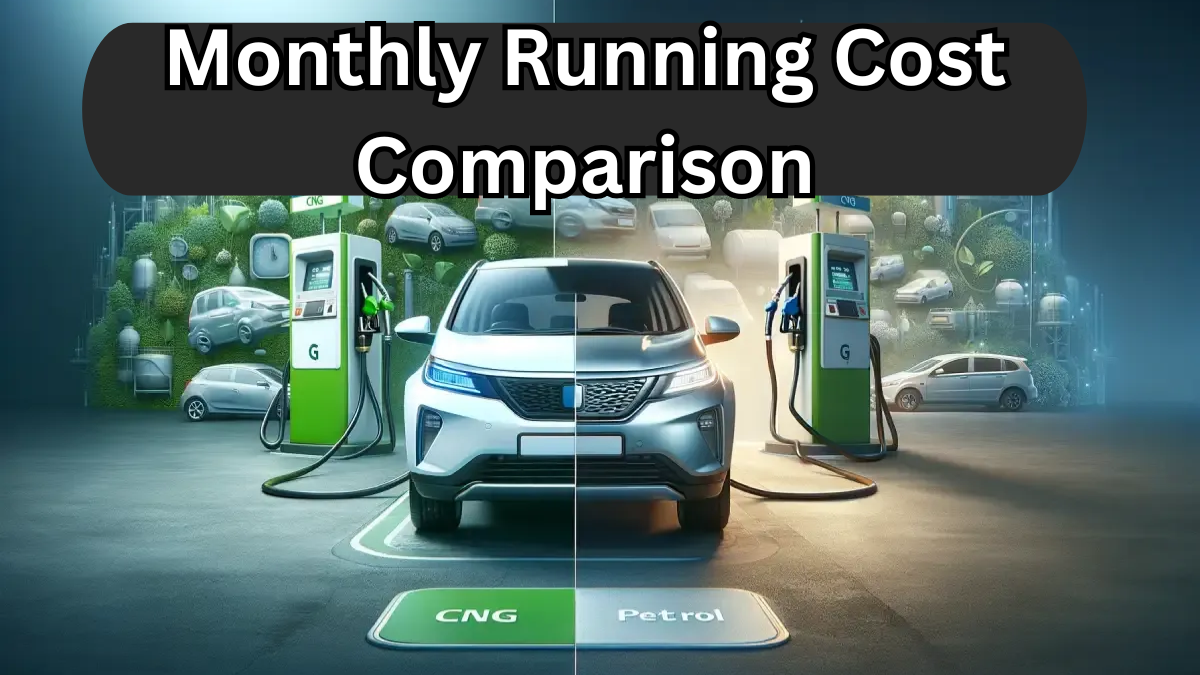If you’re planning to buy a car or switch your current one to a more cost-effective fuel option in 2025, the big question is: Should you go for petrol or CNG? With rising fuel prices and growing environmental concerns, understanding the car running costs of each option has never been more important.
Let’s break it down in simple terms to help you decide what’s best for your monthly budget and driving needs.

Table of Contents
Why This Comparison Matters in 2025

In 2025, fuel prices are fluctuating, urban commute habits are changing, and more drivers are looking for ways to save money without compromising convenience.
The Petrol vs CNG cost comparison 2025 is not just about price per litre—factors like mileage, maintenance, and availability also play a big role.
Key Factors Affecting Car Running Costs
Here’s what influences your monthly expenses:
-
Fuel price per kg/litre
-
Mileage (km/kg or km/litre)
-
Monthly usage in kilometers
-
Maintenance and service intervals
-
Initial car cost and CNG kit installation
Petrol vs CNG Monthly Cost Comparison in 2025
Let’s compare the monthly running costs of a petrol car vs a CNG car based on an average monthly usage of 1,200 km:
| Factor | Petrol Car (2025) | CNG Car (2025) |
|---|---|---|
| Fuel Price (avg) | ₹110/litre | ₹75/kg |
| Average Mileage | 18 km/litre | 25 km/kg |
| Monthly Distance | 1,200 km | 1,200 km |
| Fuel Needed | 66.7 litres | 48 kg |
| Monthly Fuel Cost | ₹7,337 | ₹3,600 |
| Estimated Annual Saving | – | ₹44,844 (vs Petrol) |
Monthly savings with CNG: Approx. ₹3,700
Pros and Cons: Petrol vs CNG in 2025
Petrol Cars
Pros:
-
Widely available fuel stations
-
Better engine performance
-
Lower upfront cost
Cons:
-
Higher fuel cost
-
Lower mileage
CNG Cars
Pros:
-
Much lower fuel cost
-
Higher mileage per kg
-
Lower emissions (eco-friendly)
Cons:
-
Fewer CNG refilling stations (especially outside metro areas)
-
Higher initial cost due to CNG kit
-
Slightly reduced boot space
Who Should Choose What?
Choose CNG If You:
-
Drive more than 1,000 km a month
-
Live in a city with good CNG infrastructure
-
Don’t mind slightly reduced boot space
-
Want to save on fuel over the long term
Choose Petrol If You:
-
Drive occasionally or less than 800 km/month
-
Want a peppier engine performance
-
Live in areas where CNG is hard to find
Long-Term Financial Impact
The Petrol vs CNG cost comparison 2025 clearly favors CNG for daily or long-distance commuters. Although you might spend more initially on a CNG vehicle, you’ll easily recover the cost difference within 1–2 years due to lower monthly car running costs.
FAQs
Q1. Is it safe to use CNG in cars in 2025?
Yes, modern CNG kits are government-approved and come with multiple safety features. However, it’s important to get regular checks and servicing.
Q2. How long does it take to recover the extra cost of a CNG kit?
Typically, if you drive 1,000+ km per month, you can recover the cost within 12–18 months due to fuel savings.
Q3. Are CNG vehicles less powerful than petrol cars?
Yes, CNG cars usually have slightly lower acceleration and pickup compared to petrol variants. But for city driving, this difference is barely noticeable.
Q4. Will CNG prices remain lower than petrol in 2025?
While fuel prices can fluctuate, CNG has consistently been more economical than petrol. In 2025, this trend is expected to continue in most urban areas.
Final Thoughts
When it comes to Petrol vs CNG cost comparison 2025, CNG stands out as the clear winner for those who drive regularly and want to keep car running costs under control. But if convenience, performance, and availability are your top priorities, petrol still has its merits.
Click here to learn more







